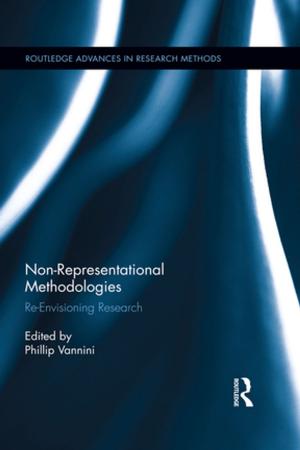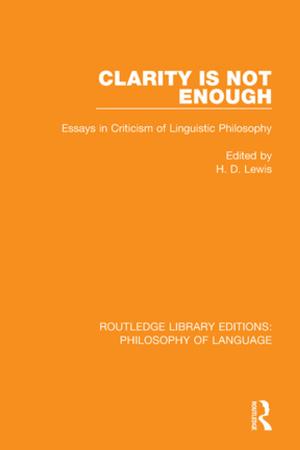Stalinist Genetics
The Constitutional Rhetoric of T. D. Lysenko
Nonfiction, Health & Well Being, Psychology, Mental Health| Author: | ISBN: | 9781351864442 | |
| Publisher: | Taylor and Francis | Publication: | March 2, 2017 |
| Imprint: | Routledge | Language: | English |
| Author: | |
| ISBN: | 9781351864442 |
| Publisher: | Taylor and Francis |
| Publication: | March 2, 2017 |
| Imprint: | Routledge |
| Language: | English |
Stalinist Genetics focuses on the rhetoric of T. D. Lysenko, the founder of an agrobiological doctrine (Lysenkoism) in the Stalinist Soviet Union. Using not only scientific but also political and ideological arguments, Lysenko achieved an official ban on Soviet Mendelian genetics. Though the ban was brief and Lysenkoism, as a leading biological doctrine, was eventually deposed in favor of Mendelism, Lysenkoism remains a paradigmatic example of pernicious political interference in science. In this study, the critical orientation for reading Lysenko's major speeches is constitutional rhetoric. It combines Kenneth Burke's dialectic of constitutions and rhetoric of the subject. Painting a nuanced picture of intellectual, economic, ideological, and political life in the Soviet Union of the 1930s and 1940s, the book demonstrates how the rhetorics of Lysenkoism and Mendelism interacted with Stalinist culture in the fight for dominating Soviet science. The reader will learn how Lysenko's constitutional rhetoric created a space where scientific terms transformed into political and ideological ones, and vice versa. The book also shows how, in a dialectical flip, the Lysenkoist rhetoric eventually turned from tool to master. Contrary to Lysenko's intentions, his language gave his opponents, Soviet Mendelians, grounds on which to defend their science and criticize Lysenkoism. Stanchevici forcefully reasserts the blurriness of the boundaries between science and politics, and argues that scientific language reveals more plasticity and adaptability to the political situation than has hitherto been assumed. Intended Audience: Scholars in rhetoric, history, and philosophy of science; graduate or upper-division undergraduate course in the rhetoric of science or technical communication.
Stalinist Genetics focuses on the rhetoric of T. D. Lysenko, the founder of an agrobiological doctrine (Lysenkoism) in the Stalinist Soviet Union. Using not only scientific but also political and ideological arguments, Lysenko achieved an official ban on Soviet Mendelian genetics. Though the ban was brief and Lysenkoism, as a leading biological doctrine, was eventually deposed in favor of Mendelism, Lysenkoism remains a paradigmatic example of pernicious political interference in science. In this study, the critical orientation for reading Lysenko's major speeches is constitutional rhetoric. It combines Kenneth Burke's dialectic of constitutions and rhetoric of the subject. Painting a nuanced picture of intellectual, economic, ideological, and political life in the Soviet Union of the 1930s and 1940s, the book demonstrates how the rhetorics of Lysenkoism and Mendelism interacted with Stalinist culture in the fight for dominating Soviet science. The reader will learn how Lysenko's constitutional rhetoric created a space where scientific terms transformed into political and ideological ones, and vice versa. The book also shows how, in a dialectical flip, the Lysenkoist rhetoric eventually turned from tool to master. Contrary to Lysenko's intentions, his language gave his opponents, Soviet Mendelians, grounds on which to defend their science and criticize Lysenkoism. Stanchevici forcefully reasserts the blurriness of the boundaries between science and politics, and argues that scientific language reveals more plasticity and adaptability to the political situation than has hitherto been assumed. Intended Audience: Scholars in rhetoric, history, and philosophy of science; graduate or upper-division undergraduate course in the rhetoric of science or technical communication.















